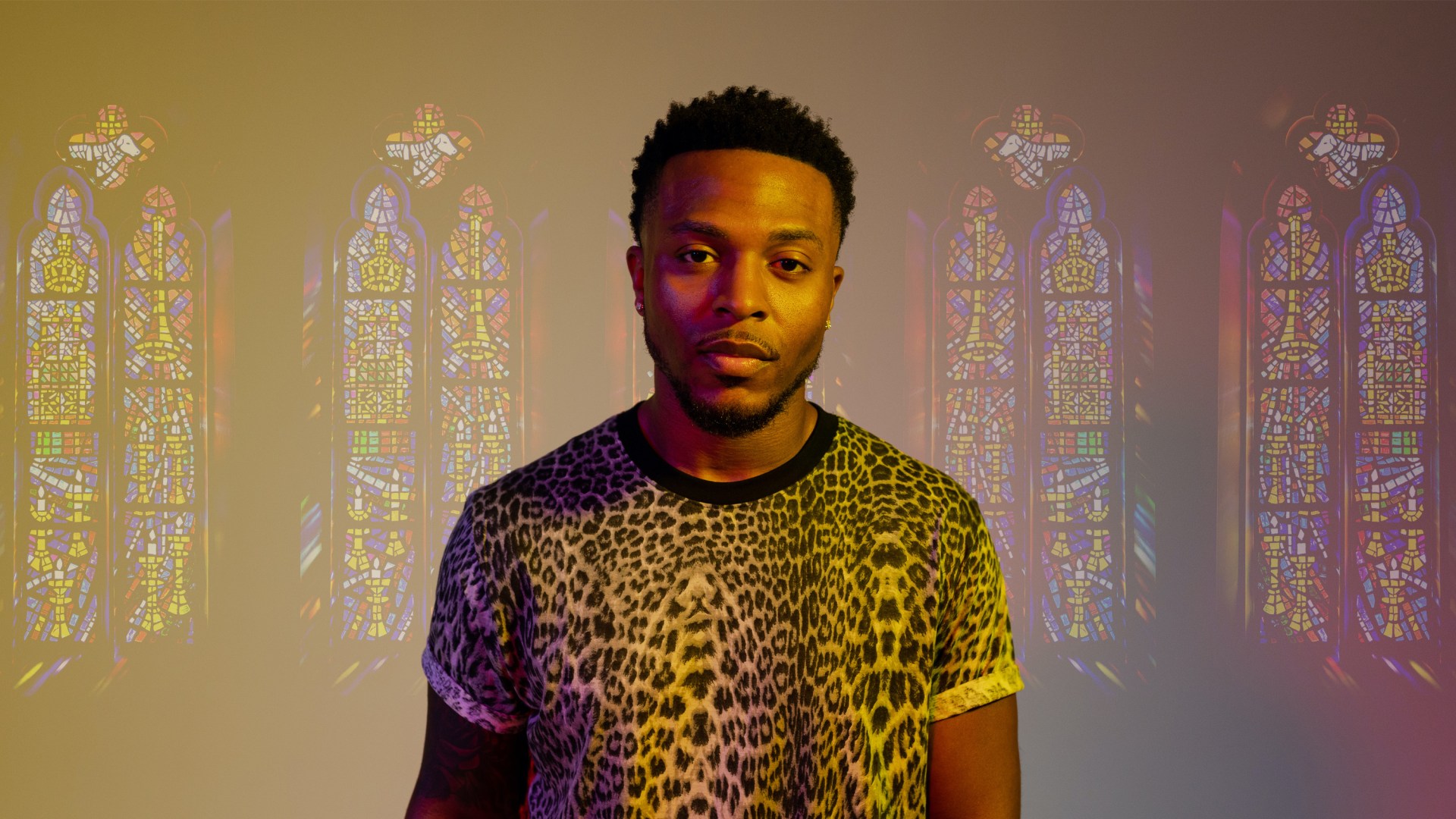Have you ever heard a medley of “Feliz Navidad” and “O Holy Night”? I hadn’t either, until this year (thank you, CeCe Winans).
This batch of new Christmas releases was full of fun surprises: elaborately orchestrated arrangements of favorite carols, bluesy ballads, and an array of thoughtful, original songs reflecting on the arrival of Christ and the eternal echoes of the first Christmas.
Whether you’re looking for Christmas music to accompany hosting and feasting or gentle songs to listen to in a quiet house with a cup of cinnamon tea, there’s something here for you.
As I write this, I’m looking at our family’s first batch of Christmas cookies, creatively decorated by my three kids. (I’m calling it our test batch.) We listened to some of these albums as we mixed and frosted. Their favorite new song so far is Cochren & Co.’s “This Christmas.” I don’t have a favorite yet, but Ben Folds’s new album has been a nice accompaniment to these first chilly days.
Matt Redman—In Excelsis (EP)
Finding new, singable Christmas songs can be challenging for churches that want to include traditional carols alongside music that reflects their usual worship style. Matt Redman’s “When We Behold (In Excelsis)” borrows the familiar melody of “When I Survey the Wondrous Cross,” making it an ideal seasonal congregational song to introduce at a time of year when people look forward to gathering and singing well-loved melodies.
The song is cowritten and performed by Redman and Jon Guerra, who replace the first verse of the hymn with lyrics that preserve the theme of “surveying” or “beholding” Christ in a new context:
When we behold that scene long ago,
Shepherds in fields under cover of night,
Breaking the silence, a heavenly choir,
As angels appeared in glorious light.
The EP also includes an arrangement of “Silent Night” and a song called “God the Son,” a hopeful, piano-driven original with rich string accompaniment, cowritten with Andrew Bergthold, Quintin Trotter, and W. David O. Taylor.
We Are Messengers—Rejoice! A Celtic Christmas (EP)
For fans of Keith and Kristyn Getty’s Irish Christmas music and tour, this release from We Are Messengers will be a welcome addition to the rotation of Celtic Christmas music. What is it about Celtic music that feels so cozy and perfect for Christmastime?
The festive, spirited arrangements of “I Heard the Bells on Christmas Day” and “The Wexford Carol” showcase tuneful string lines and close vocal harmonies.
“Thorn and Thistle,” a contemplative original carol cowritten with Kristyn Getty, has a haunting, lilting melody reminiscent of “Let All Mortal Flesh Keep Silence.”
The lyrics meditate on the mysterious, even sorrowful realities of the Incarnation—that Christ’s arrival was good news to humanity but was also an act of sacrifice and love that brought a perfect God into contact with the world’s brokenness and darkness:
To a world of thorn and thistle,
Shadowed still by Eden’s fall,
On a night so unexpected,
Enters the Lord of all.
CeCe Winans—Joyful, Joyful: A Christmas Album
CeCe Winans has been a force in Christian music for decades, winning 15 Grammy Awards, 31 Dove Awards, and 19 Stellar Awards. Her new Christmas album—produced and cowritten with her son, Alvin Love III—showcases Winans’s iconic voice across high-energy gospel tracks, simple arrangements of carols, and dance-pop infused Christmas favorites.
The opening track, “Joy to the World,” is a pop-EDM setting of Isaac Watts’s classic hymn, infused with exuberant choral interjections. “O Come, O Come, Emmanuel” is a piano waltz with unexpected chromaticism and dramatic orchestral flourishes.
A surprising Latin jazz mash-up combines “Feliz Navidad” and “O Holy Night.” The final track is a simple setting of “Silent Night,” with Winans and a choir singing in resonant unison over guitar and orchestra.
Future of Forestry—Symphonic Christmas (Live)
Ambient rock artist and composer Eric Owyoung blends his electronic scoring techniques with the drama and dynamic range of a live orchestra for a unique, unified live project. The album begins with a plaintive solo of the first few lines of, “O Come, O Come, Emmanuel,” dissolving into a gentle, uplifting “Come, Thou Long Expected Jesus.”
Owyoung’s orchestrations are lush, playing with texture and timbre to build a narrative arc into each track. A choral interlude in “Emmanuel” delivers wistful, close harmonies.
The closing track is a setting of “Joy to the World” over first suspenseful then increasingly anticipatory percussion and strings, finally breaking into a rock anthem setting of the hymn “All Creatures of our God and King.” It’s worth making time to listen to the album in its entirety to experience the emotional trajectory of the whole performance, from the first “O come, O come” to the final “rejoice.”
JJ Heller—The More The Merrier (full release Nov. 29)
Folk singer and songwriter JJ Heller’s vibrant voice and gift for lyrical imagery come together on an album of richly arranged Christmas favorites and thoughtful originals.
The personal, evocative “Thanksgiving Song” lovingly calls to mind encounters and images from family gatherings. “God With All of Us” is a stirring musical narration of human encounters with Christ as an infant—starting with an intimate vignette of Mary. Its anthemic chorus builds throughout the song:
God with us, close enough,
For our eyes to see and our hands to touch,
Hope for all, great and small,
God with us, God with all of us.
A very fun and un-grumpy cover of “You’re a Mean One, Mr. Grinch” and a retro-jazz version of “Jingle Bells” both feature playful original orchestrations and a kids’ choir. The album has something for everyone looking to add to their Christmas playlists—whether for quiet morning reflections or a party.
Ben Folds—Sleigher
Fellow millennial indie pop enthusiasts rejoice—it’s a Ben Folds album, complete with the lively, bright piano riffs and cheery vocal melodies that listeners expect from Folds. Instrumental tracks like “Waiting for Snow” and “Little Drummer Bolero” draw on the same festive energy as Vince Guaraldi’s Charlie Brown standards. Something about the jazz-pop piano harmony sounds like taking a walk on a still, snowy day.
“Sleepwalking Through Christmas” is a gently swung, bluesy track about going through the motions of merrymaking when your mind is somewhere else:
I’m sleepwalking through Christmas.
Everybody thinks that I’m awake.
I keep my eyes open; I’m eloquently spoken.
Oh, this might be the year I make a change.
The album has a magnetic blend of winter melancholy, introspection, and hopefulness that Folds always manages to turn into something warm and bright and comforting.
Jonathan McReynolds—Red & Green
Grammy Award–winner Jonathan McReynolds has become one of today’s most celebrated gospel vocalists, collaborating with artists like Marvin Winans and Chandler Moore. His first Christmas album is a gospel–R & B project with almost-cinematic scope in its arrangements and emotional range.
The title track, “Red & Green,” is a driving, feel-good pop anthem that showcases McReynolds’s vocal power and virtuosity.
“Sent Me a King,” a soulful duet featuring and cowritten by gospel singer and pianist Smokie Norful, is both personal and expansive in its reflection on Christ’s reign, proclaiming both “God sent me a king” and “God sent us a king.”
Tedashii—’Tis the Season
Celebrated Christian hip-hop artist Tedashii is known by his fans as a prolific rapper and member of the 116, a collective of artists signed to Reach Records (the label founded by Lecrae). Tedashii has had a long and successful career, helping build the Christian hip-hop scene and collaborating with artists like Trip Lee, Sho Baraka, KB, and Andy Mineo.
’Tis the Season is a departure from Tedashii’s usual musical output; it’s a warm, inviting collection of Christmas originals and rearrangements. His mellow singing voice is perfectly suited to the understated renditions of “Away in a Manger,” “The Christmas Song,” and “Silent Night.”
Alongside Christmas standards are several vibey romantic tracks—“Cold Outside” and “Christmas Call,” a charming, lighthearted duet featuring Christian electronic dance singer V. Rose—for anyone looking for something slightly steamy.
Cochren & Co.—The Company Christmas Album
Cochren & Co.’s Christmas album is a spirited southern-rock and blues-inflected collection of covers and originals. Lead singer Michael Cochren’s versatile and agile voice has the right amount of smoothness for an R & B standard like “This Christmas” and enough grain and soul for a driving, rough-and-tumble blues rendition of “Caroling, Caroling.”
“Ribbons and Bows” has the infectious, hook-driven flavor of a contemporary country ballad, and “That Spirit of Christmas” is a laid-back, loungy slow track. Both songs balance the sentimentality of familiar Christmas themes with fresh musical ideas and lyricism.


















































